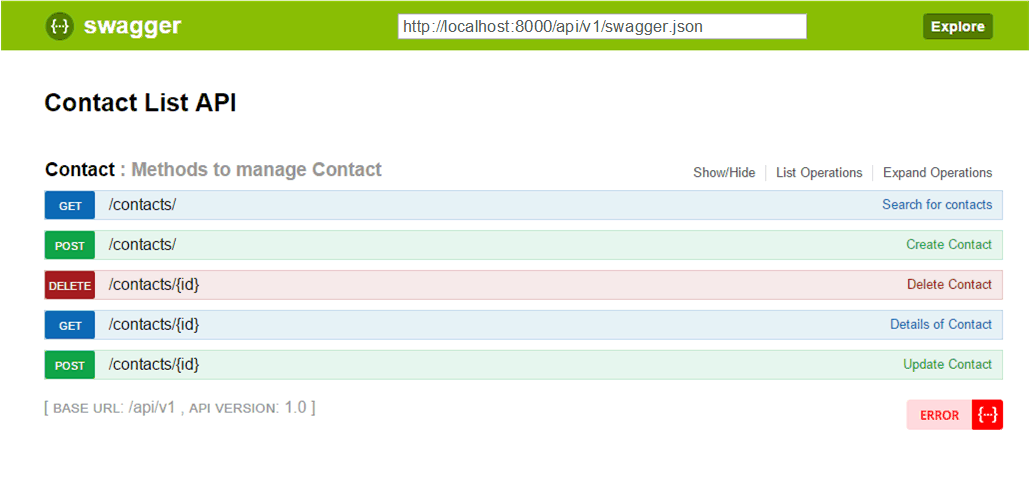Mongoose Express REST-full API
merest provides easy way to expose Mongoose models as REST-full api. It creates pointed bellow end-points:
For each api-application:
all api options: OPTIONS ..\
For each exposed model
model api options: OPTIONS ..\model-plural-name\search: GET ..\model-plural-name\create: POST ..\model-plural-name\details: GET ..\model-plural-name\:idupdate: POST ..\model-plural-name\:iddelete: DELETE ..\model-plural-name\:id
Generally merest allows to:
- create rest api for many models
- create many rest interfaces for one model
- restrict the set of documents that are accessible via API
- configure of each mentioned above end-points
- expose static and instance methods of the Model
- create and expose swagger documentation of your rest api
- serve the swagger-ui (merest-swagger required)
Documentation
http://dscheglov.github.io/merest/
Installation
npm i --save merestmerest doesn't install Mongoose or Express in production environment. It is crucial to embed API into your project correctly. You should to install these components by yourself.
Recommended components:
npm i --save mongoose express body-parser method-overrideTo provide swagger documentation and user interface additionally the merest-swagger should be installed:
npm i --save merest-swaggerGetting started with merest
'use strict'; const merest = ;const express = ;const bodyParser = ;const methodOverride = ; // Defining modelconst mongoose = ;const Contact = mongoose;mongoose; // Creating the Express application to serve APIconst api = ; api; // Parsing JSON-bodiesapi; // Supporting HTTP OPTIONS and HTTP DELETE methods api; // Exposing our API api;Calling API:
curl -X OPTIONS http://localhost:8000/Output:
[ ["options","/","List all end-points of current application"], ["options","/contacts/","List API-options for contacts"], ["get","/contacts/","List/Search all contacts"], ["post","/contacts/","Create a new Contact"], ["get","/contacts/:id","Find a Contact by Id"], ["post","/contacts/:id","Find a Contact by Id and update it (particulary)"], ["delete","/contacts/:id","Find a Contact by Id and delete it."]]Getting contact list:
curl -X GET http://localhost:8000/contactsOutput:
[ , ]Integrating merest into existing projects
'use strict'; const merest = ; // to support SwaggerUIconst express = ;const bodyParser = ;const methodOverride = ; // Defining modelconst mongoose = ;const Contact = mongoose;mongoose; const app = ;// Creating the Express application to serve APIconst api = title: 'Contact List API' host: 'localhost:8000' // Assign correct host that could be accessed from your network path: '/api/v1' options: false // we do not need the OPTIONS any more; app; // Parsing JSON-bodiesapp; // Supporting HTTP OPTIONS and HTTP DELETE methods api; // Exposing our APIapi; // Exposing swagger-ui app; // mounting API as usual sub-application app;Going to swagger-ui in browser: http://localhost:8000/swagger-ui
